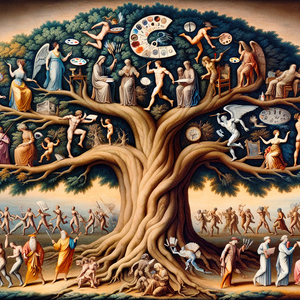Beyond the Whistle: The Lifelong Impact of Coaches on Players

Central to the coach-player dynamic is the foundation of trust and respect. Effective coaching is predicated on understanding the individual needs and aspirations of each player. This relationship fosters an environment where athletes feel safe to express themselves, take risks, and grow. A notable example is Phil Jackson, the legendary basketball coach known for his unconventional methods and emphasis on holistic team dynamics. Jackson cultivated a deep sense of trust with his players, including the likes of Kobe Bryant and Michael Jordan, who often credit him with not only enhancing their skills but also fostering a sense of self-awareness and teamwork that transcended the game itself.
Mentorship Beyond the Game
Coaches often serve as mentors, guiding athletes through both sports and life's challenges. The relationship between Serena Williams and her coach, Patrick Mouratoglou, exemplifies this mentorship role. Beyond refining her tennis skills, Mouratoglou has been instrumental in helping Serena navigate personal struggles and societal pressures, emphasizing mental resilience and self-belief. Such mentorship prepares athletes to face life's adversities with confidence and determination, equipping them with skills that are applicable in various facets of their lives, from career pursuits to personal relationships.
Life Lessons through Adversity
Adversity is an inevitable part of both sports and life, and coaches play a crucial role in teaching players how to cope with setbacks. NFL coach Tony Dungy provides a compelling example of this principle. Throughout his career, Dungy faced numerous challenges, including personal tragedies and professional disappointments. His coaching philosophy centered on resilience, encouraging players to view challenges as opportunities for growth rather than insurmountable obstacles. Notably, quarterback Peyton Manning attributes much of his success to the mindset cultivated under Dungy's guidance, illustrating how the ability to rebound from failure is a vital life skill nurtured by effective coaching.
Creating Lifelong Bonds
The relationships forged between coaches and players often evolve into lifelong connections, characterized by mutual respect and shared experiences. These bonds can resemble familial relationships, marked by emotional highs and lows that transcend the sport itself. The partnership between football coach Bill Belichick and quarterback Tom Brady serves as a testament to this dynamic. Their collaboration not only yielded numerous championships but also established a profound respect and understanding that influenced their careers long after they parted ways. Many athletes continue to seek guidance and mentorship from their coaches as they navigate life beyond sports, underscoring the lasting impact of these relationships.
The influence of coaches on their players is profound, shaping not just athletic performance but personal development and life skills that last a lifetime. Coaches like Phil Jackson, Tony Dungy, and Patrick Mouratoglou exemplify how mentorship can create an environment in which athletes flourish beyond their playing years. Recognizing the pivotal role of coaches extends our understanding of sports; they are not merely strategists but also mentors who mold resilient, capable individuals prepared to face the world. The lessons learned under their guidance resonate long after the final game, echoing in the lives of those they have inspired, illustrating that the impact of coaching goes far beyond the whistle.
Sports Coach
High schools, colleges, professional sports teams, and sports academies
Core Responsibilities
Develop training programs tailored to athletes’ individual needs and skill levels.
Foster a positive team culture that promotes trust, respect, and collaboration among players.
Analyze player performance and provide constructive feedback to facilitate improvement.
Required Skills
Strong communication and interpersonal skills to build relationships and motivate athletes.
In-depth knowledge of the sport, including rules, strategies, and training techniques.
Experience in mentoring or teaching, ideally with a background in sports psychology or physical education.
Athletic Trainer
Colleges, universities, professional sports teams, and fitness centers
Core Responsibilities
Assess and treat sports-related injuries to ensure the well-being of athletes.
Develop rehabilitation programs and collaborate with coaches to prevent injuries during practice and competition.
Educate athletes on injury prevention techniques and proper nutrition.
Required Skills
Certification in athletic training and knowledge of anatomy and physiology.
Strong problem-solving skills and the ability to make quick decisions in high-pressure situations.
Effective communication skills to explain treatment plans to athletes and coaches.
Sports Performance Specialist
Sports performance centers, professional teams, and rehabilitation facilities
Core Responsibilities
Design and implement strength and conditioning programs to enhance athletic performance.
Monitor and analyze athletes’ physical progress using various assessment tools.
Collaborate with coaches to align performance goals with training strategies.
Required Skills
Certification in strength and conditioning (e.g., CSCS) or a related field.
Knowledge of biomechanics and exercise physiology to tailor programs effectively.
Excellent motivational skills to inspire athletes to achieve their peak performance.
Sports Psychologist
Professional sports teams, universities, and sports organizations
Core Responsibilities
Conduct assessments to identify athletes’ mental health needs and performance enhancement goals.
Provide counseling and mental skills training to help athletes cope with pressure and improve focus.
Work with coaches to integrate psychological strategies into training and competition.
Required Skills
Advanced degree in psychology with a specialization in sports psychology.
Strong understanding of psychological theories and their application in sports settings.
Exceptional communication skills to build rapport with athletes and coaches.
Sports Management Professional
Sports franchises, sports marketing agencies, and event management companies
Core Responsibilities
Oversee the business operations of sports teams, organizations, or facilities, focusing on marketing, finance, and event management.
Develop strategic plans to enhance brand visibility and community engagement.
Coordinate logistics for events, ensuring compliance with regulations and budgets.
Required Skills
Degree in sports management, business administration, or a related field.
Strong organizational and leadership skills to manage multiple projects effectively.
Proficient in data analysis and marketing strategies within the sports industry.


